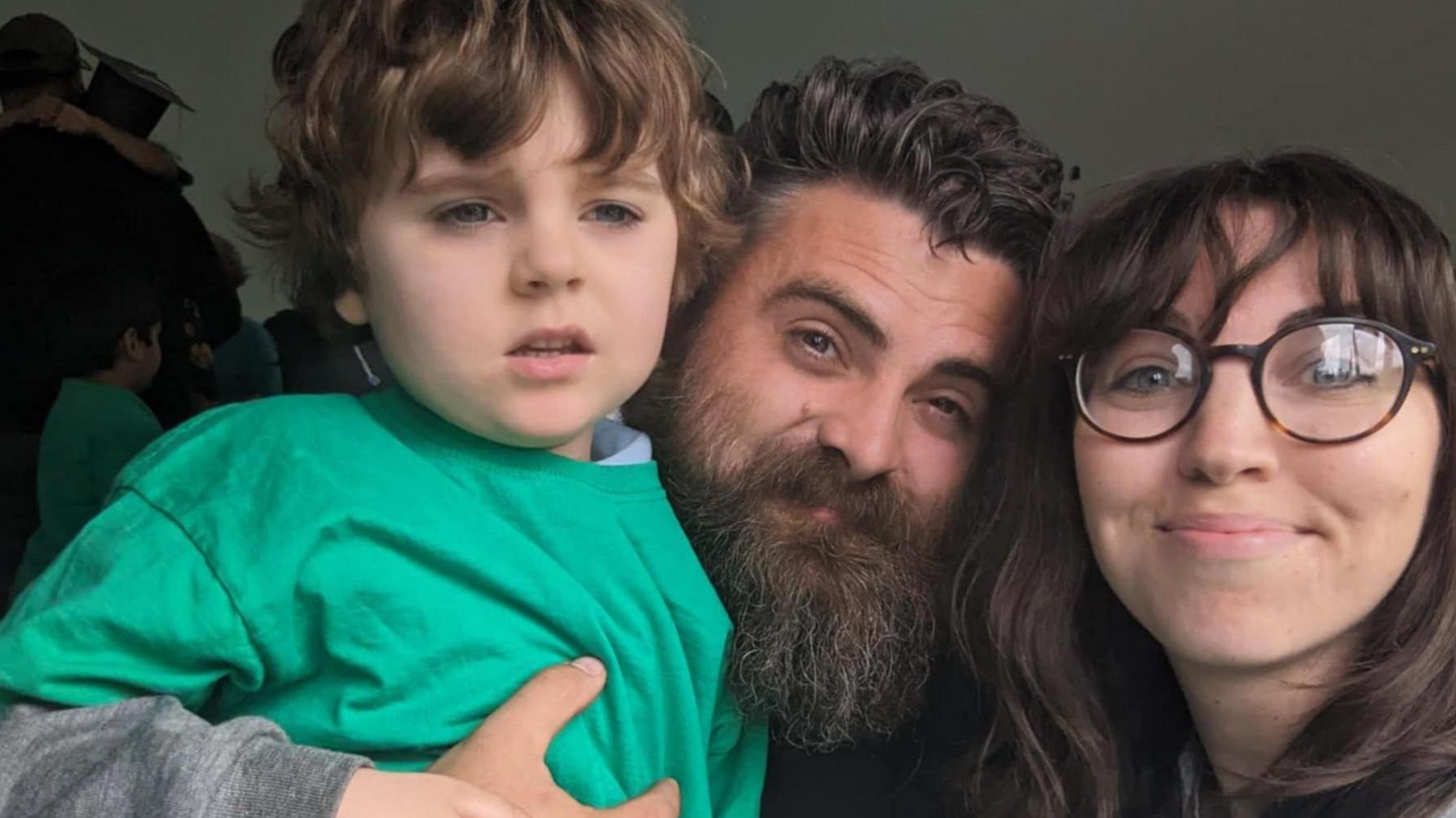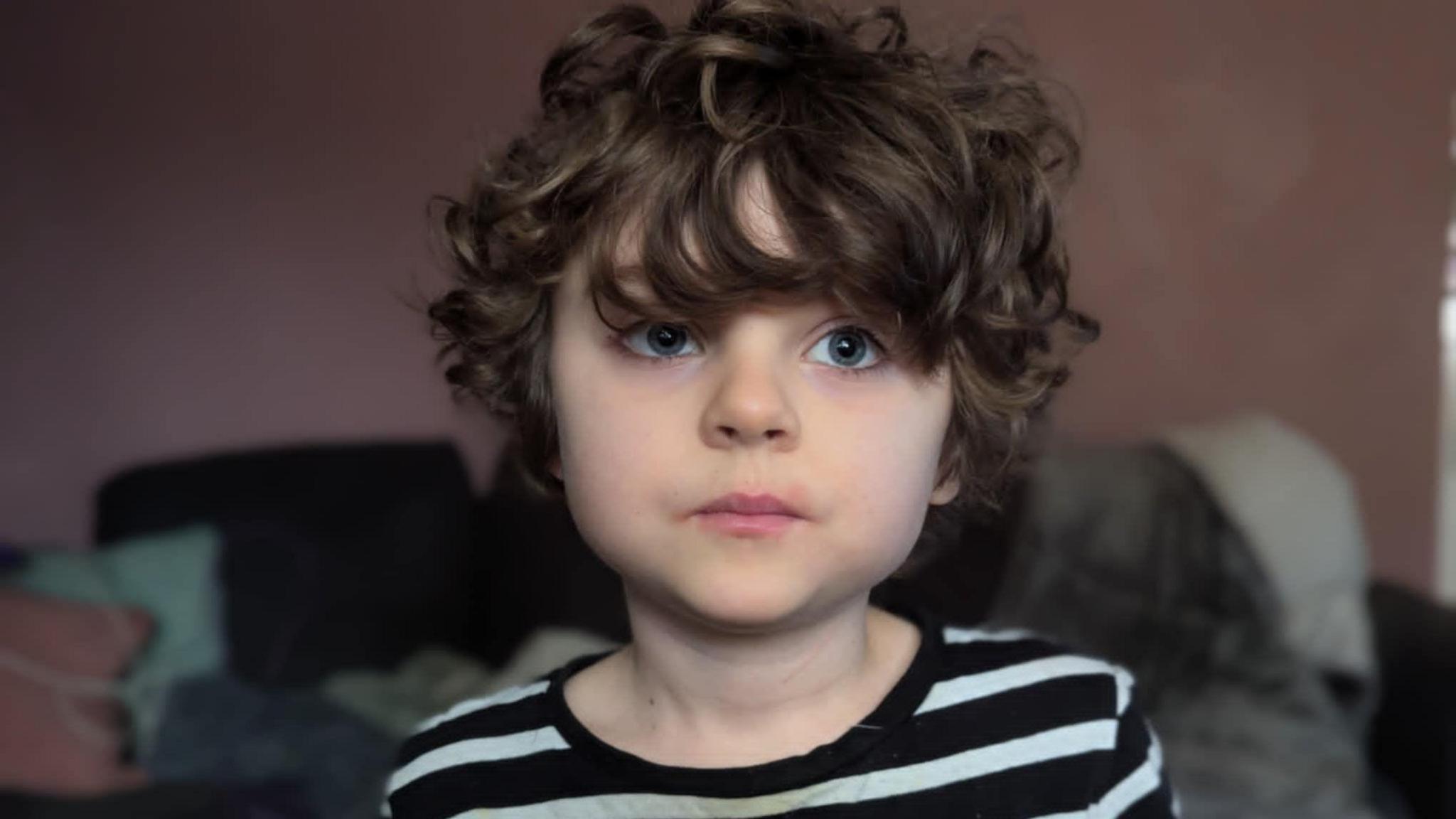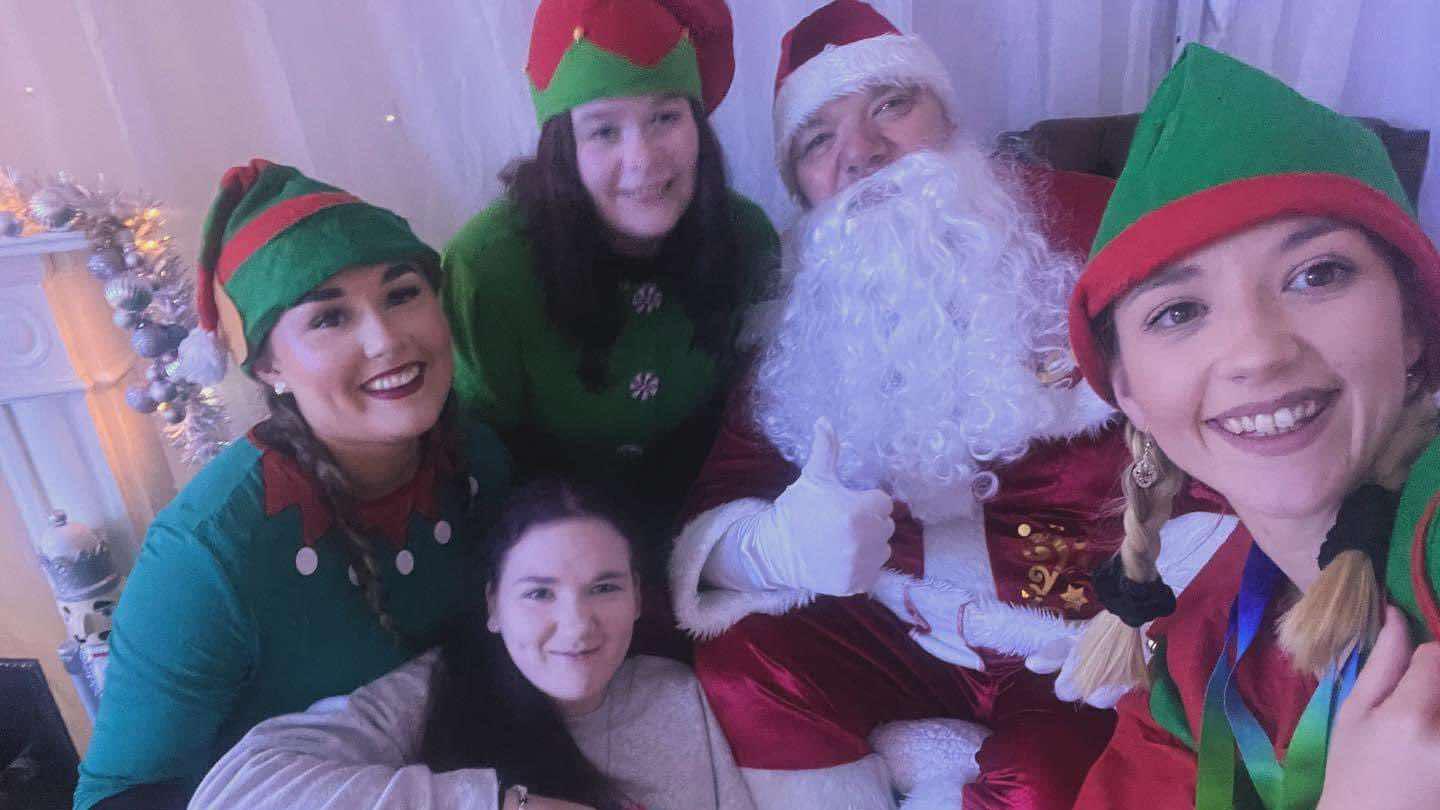'Christmas is isolating for families like ours'

Aimee-Leigh Mahoney says centre markets and Santa's grottos are too overwhelming for her son
- Published
"Having a child with additional needs means Christmas time can feel isolating for families like ours," says mum Aimee-Leigh Mahoney.
She is a full-time carer of her six-year-old son Harry-Jude, who has autism spectrum disorder (ASD) and attention deficit hyperactivity disorder (ADHD).
Miss Mahoney, of Nottingham, says the lead-up to Christmas is an incredibly difficult time for her family, as town centre markets and Santa's grottos are too overwhelming for Harry-Jude.
The 32-year-old feels like adapting activities to suit children with special educational needs and disabilities (SEND) is treated like an "after-thought" - and she wants that to change.
'Sensory overload'
Harry-Jude was diagnosed with autism and ADHD four years ago, and his mum says he is pre-verbal, meaning his speech is limited.
His additional needs make him sensitive to noise, light and large crowds - three things that are common at this time of year.
When taking him to Christmas events in the past, Miss Mahoney, of The Meadows, recalls just how difficult it can be for her son.
"He can't talk and tell us what he struggles with, so you're constantly dealing with trial and error", she said.
"When we visited the markets, the noise and hordes of people makes him anxious, and he can lash out and get violent with us and other children.
"It is a complete sensory overload for him.
"It isn't his fault, and we don't want him to hurt anyone, so we just don't go anymore."

Harry-Jude has autism and ADHD
Miss Mahoney is her son's sole carer and teacher as he is currently home educated, and her partner Luke Martin works full-time.
She says the role can be "lonely and isolating" at times.
"It's particularly difficult with social media; you see everyone going to the markets and visiting Santa together - it stings.
"I accept that we have a different Christmas, but sometimes I feel envious."
Her experiences finding SEND Christmas sessions for Harry-Jude have not been positive, as she says they are often during unsocial or school hours.
"Parents with autistic children will know that routines are so important, so activities during off-peak school hours don't suit him.
"A popular Santa's grotto ended in November, and that's too early to take Harry-Jude - he won't understand why Christmas isn't coming straight after that.
"I am happy that these options exist, but sometimes it feels like a tick box exercise."
More SEND spaces
Nottinghamshire-based charity Spectrum WASP (We Are Special People) provides local support for families of children with disabilities.
Jess Mason, 31, the charity's development co-ordinator, says that Christmas is a time of "high emotions" for autistic children.
"Some children are overly excited and struggle to regulate their emotions, and others find the changing environment difficult to cope with.
"Anything from Christmas decorations in the house to flashing lights can impact these children."
She says there has been an increase in SEND spaces cropping up over the past few years, but they want to see more.
"Quiet hours at markets and shops don't happen enough.
"As a neurotypical person, it is still overwhelming going outside and shopping at this time of year - imagine what it's like for these children.
"We don't want them to miss out, and they deserve to enjoy Christmas as much as any other child does."
Get in touch
Tell us which stories we should cover in Nottingham
Follow BBC Nottingham on Facebook, external, on X, external, or on Instagram, external. Send your story ideas to eastmidsnews@bbc.co.uk, external or via WhatsApp, external on 0808 100 2210.
Related topics
- Published30 November 2024
